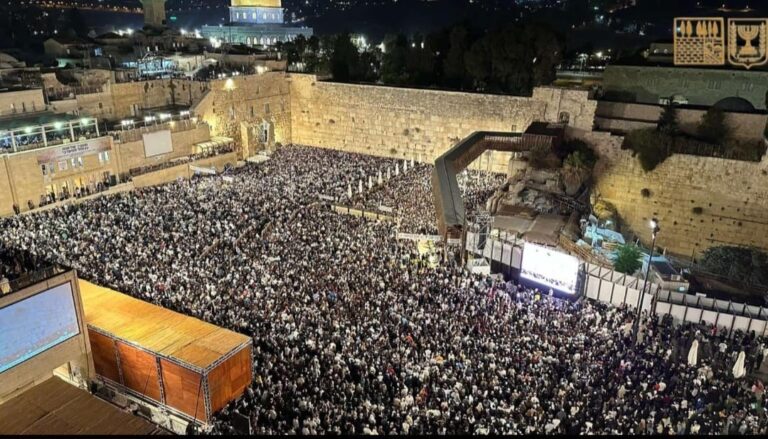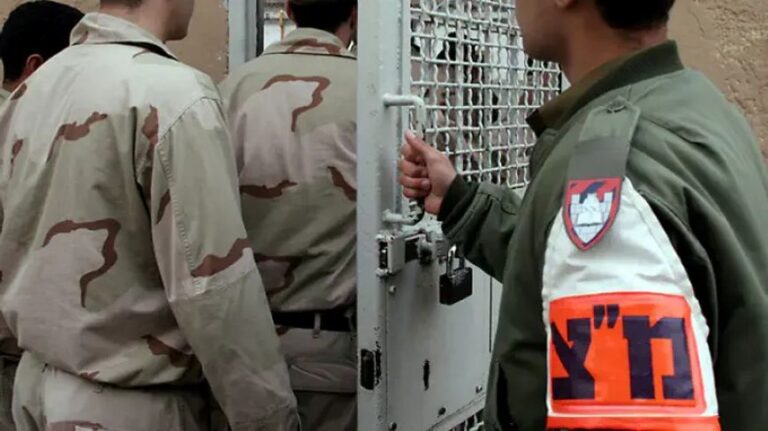The maftir of this weeks parsha is read from the end of parshas Ki Seitzei in honor of parshas Zachor. We have a special mitzvah to annihilate the nation of Amalek. The main criticism against them is that Amalek didn’t fear Hashem. The question iswhy is this the main protest against them? There are many other nations who don’t fear Hashem. What type of criticism is this? It should be a condemnation towards every nation, not just Amalek. Yet, we have a special mitzvah to eradicate them completely because of this objection. Why?
The Brisker Rov says that the gemara in Bava kama (79) states that when a ganev steals he has to pay back double, but a gazlan does not. The gemara explains that the reason a ganev has to pay back double is because he is scared of the owner from whom he is stealing more than Hashem. On the other hand, the gazlan, who executes his actions in broad daylight without any hesitation, has the owner and Hashem on the same level. If we take this a step further we can ask, why is the ganev the one paying double? The gazlan should be the one to pay double because his actions were more brazen.
The answer is that by the gazlan there was absolutely no thinking involved. There was no rhyme or reason for his actions as he acted spontaneously. On the contrary, by a ganev, there is a strategy. He thinks his plans through and he figures out the best way to accomplish his scheme. He calculates on which day the people are going to be away and he makes a perfect escape route. Says the Brisker Rov that such a middah is worse than someone stealing publicly! Since a ganev is detailed he has to pay back double.
Klal Yisroel is hated by most of the nations and when an opportunity arose, they fought us. But it wasn’t planned out. No one planned an attack against us, similar to the event in which we passed through their territory like by Amalek. All nations that attacked us as well as all the nations that we fought were out of simple hatred towards us. But Amalek planned it very well. They planned our attack for quite a while, they knew where, when, and at what point we would be weakest, as the Torah says ‘v’ata ayef v’yageah- we were weak and faint.’ They planned this one out pretty solid. All the planning and all the detailing that went into attacking us proved that they ‘didn’t fear Hashem.’
Sometimes, as humans, we fall. Unfortunately the yetzer hara is well versed with every trick in the book and he is able to trick a person quite often. Although there are times when we fall, we should know that it doesn’t define us. It doesn’t describe who we are and what we stand for or represent. Even though the yetzer hara gets to us it’s spontaneous and it’s not planned out. One must realize that everyone has their challenges in life that they go through. But it’s spontaneous; it’s not planned out. We have to strengthen ourselves and our friends never to allow our mistakes to rob us of our glorious future.
The noted magid of Yerushalayim, Reb Yankel Galinsky, shlit”a, spent a few years in the torturous camps of Siberia. The work there was obviously demoralizing. Their one goal was to try to make one lose any self respect or any self esteem they had. One night, when he was sleeping he noticed that one of his gentile bunkmates woke up in middle of the night, pulls out a bag of clothing and walks over to the mirror. He puts something on, looks at himself, mumbles some words and salutes himself. This routine repeats itself every night. A few days after first realizing this,he meets the man in the field and asks him point blank about what he does every night. The man responded by stating the following ‘I was a general in the Polish Army and the Russians captured my entire brigade. They have one goal here: to de-humanize us. Therefore, every single night I wake up in middle of the night and I put on my uniform, that I managed to smuggle in with me, which is full of honors and I salute myself and say “I am a general in the Polish Army and I will always be a general!”
When we read the megillah on Purim we read how Mordechai relays messages to Queen Esther through her messenger, Hasach. The gemara tells us that Hasach was the Navi Daniel. Why was he called Hasach? The gemara tells us that it came from the terminology of being ‘cut off. He was removed from his greatness.’
What kind of downgrading was there for Daniel? Why refer to someone with a title of demotion?
Meshech Chochma says that it’s not that Daniel was demoted. Rather, up until now klal Yisroel has always associated the greatness of Daniel with the fact that he was always moser nefesh for Hashem. After the miracle of Purim, when klal Yisroel’s back was put against the wall, they saw that every single yid has the ability within themselves and the greatness to be moser nefesh on their own. It wasn’t a demotion on Daniel’s part but rather a promotion on bnei Yisroel’s part! They saw that they too can be moser nefesh themselves, not only a ‘Navi.’ They elevated themselves from within them and that’s what caused him to lose his greatness.
Although bnei Yisroel sinned and committed aveiros, after the nes they didn’t see Daniel as unique anymore because they said ‘we can all be Daniels; we can all be generals!’ Every person had, and continues to have within them, the same ability to be moser nefesh. It was only once they realized this so shtark did the chashivus they had towards Daniel diminish.
When we as individuals are put into situations where our backs are up against the wall, we have to dig down and realize that we have the ability within ourselves to overcome the challenge and attain greatness on our own.
HAVE A GREAT SHABBOS










